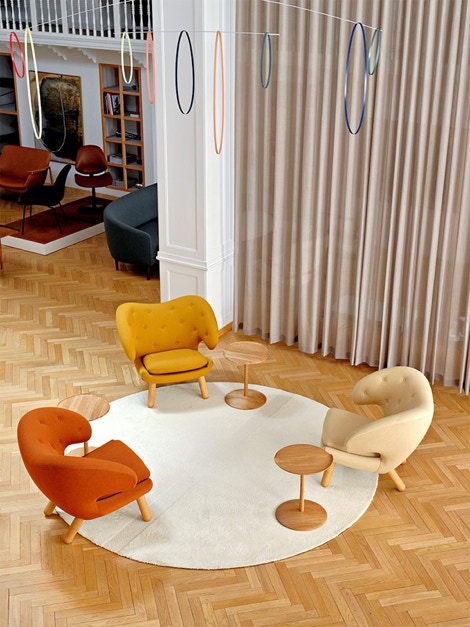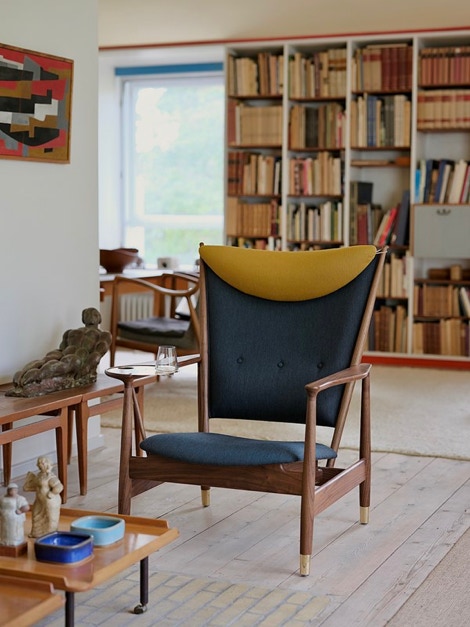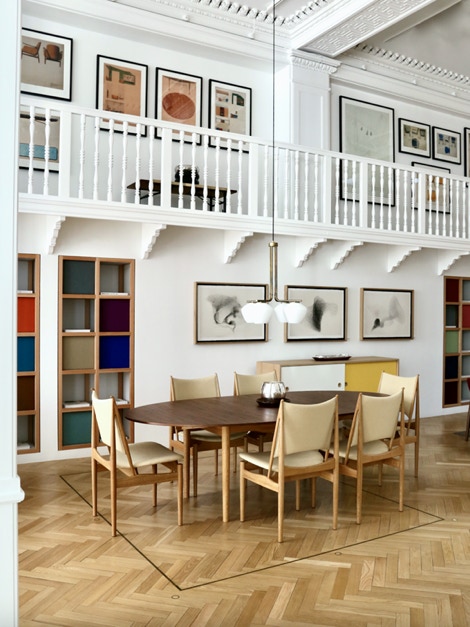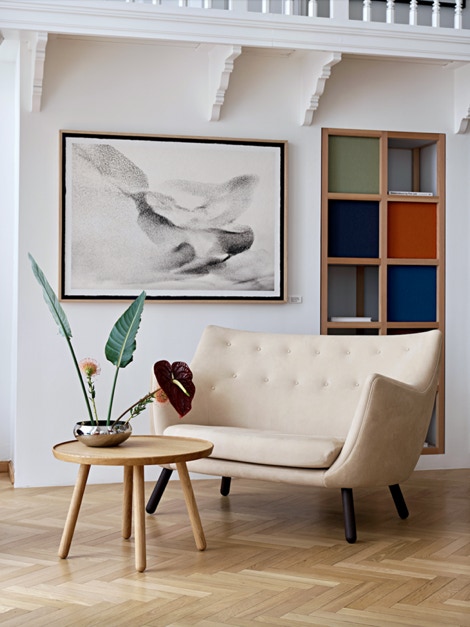

Finn Juhl (1912-1989) is considered the father of the concept of "Danish modernity" or "Danish design". At the heart of an era rich in technical, political and sociological upheaval, he played a central role in the development of Danish furniture, putting Denmark on the international design map with his innovative work.
House of Finn Juhl has owned the exclusive rights to his work since the death of his widow in 2001, and has the sole right to produce and market his furniture, reissued in close collaboration with the Wilhelm Hansen Foundation, which guarantees its fidelity and conformity.


From 1960 until his death in 1989, Finn Juhl and Hanne Wilhelm Hansen were a couple. Hanne Wilhelm Hansen and her sister, Lone, were both 4th generation successors to the Wilhelm Hansen music publishers. In 1988, the sisters decided to sell the publishing house.
Once the sale was completed, they set up a foundation - the Wilhelm Hansen Foundation. The charter states that the foundation supports the performing arts within music, dance and theater. As Hanne Wilhelm Hansen herself so elegantly put it: "For five generations, my family has profited from artists. Now it's time to give that money back to the artists.
In 1988, Hanne Wilhelm Hansen contacted the founders of OneCollection (now known as House of Finn Juhl), Ivan Hansen and Hans Henrik Sørensen. This launched the collaboration to relaunch Finn Juhl's iconic furniture. Hanne found the partnership so fruitful that she granted exclusive production rights for all Finn Juhl pieces to Ivan and Hans Henrik. Without hesitation, they accepted what was to become their life's mission.
House of Finn Juhl's mission is to re-edit Finn Juhl's furniture in a way that respects its history, without depriving itself of the contributions of modernity. The details must be as subtle and delicate as if they came from the original cabinetmakers' workshop, but the contemporary concept of quality also includes durability, and the furniture produced must be so long-lasting that it can be enjoyed by today's users as well as by generations to come.
Today, House of Finn Juhl furniture is mainly manufactured in Denmark. Upholstered furniture such as the Poet sofa and the Pelican armchair are entirely hand-sewn in the same Danish tradition as their predecessors. When it comes to wooden furniture, however, House of Finn Juhl has chosen to use modern technology, combined with excellent craftsmanship, to bring Juhl's visions to life. The intricately shaped wooden frames of the Chieftain Chair, for example, are masterfully crafted by skilled Japanese artisans in Yamagata.
Without this approach, it would not be possible to achieve the fantastic finish and delicate details that were Finn Juhl's hallmark. Finn Juhl's dilemma was that many of his furniture designs required technical solutions that had not yet been invented. Since he didn't want to change or devalue his work, he resigned himself to this fact. That's why some of his designs were only produced in very limited quantities, while others never even saw the light of day.
Finn Juhl himself was well aware of this, declaring: "It's no cause for despair that some of the developments we had hoped for never came to pass, and are still in their infancy. Perhaps they will be resurrected in the future, if necessary or reasonable, when the time is right." Finn Juhl